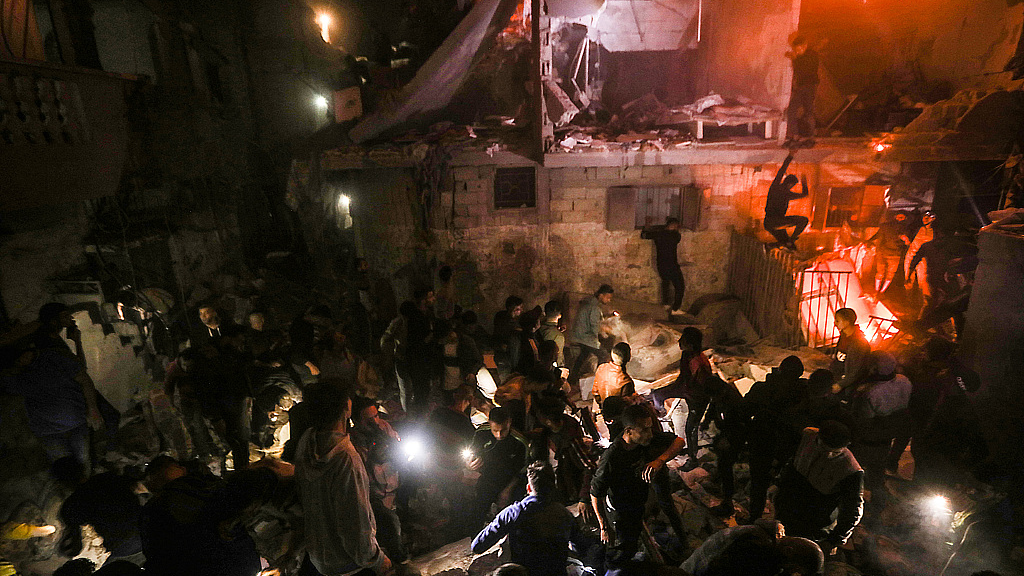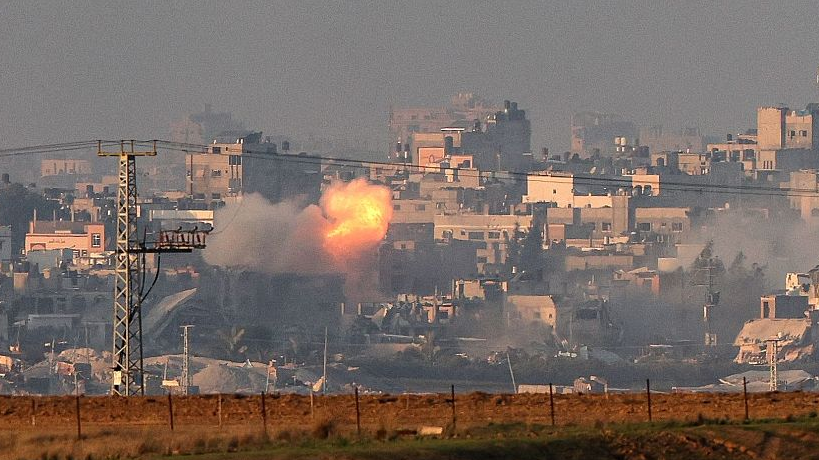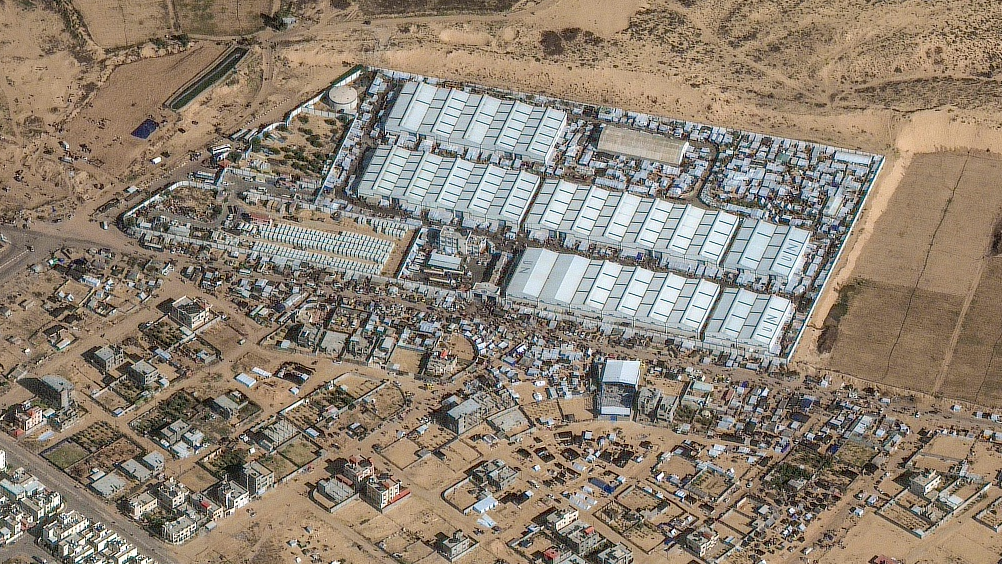
Palestinians search for victims amid the rubble of a smoldering house following an Israeli strike in Rafah in the southern Gaza Strip, December 6, 2023. /CFP
Palestinians search for victims amid the rubble of a smoldering house following an Israeli strike in Rafah in the southern Gaza Strip, December 6, 2023. /CFP
UN Secretary-General Antonio Guterres on Wednesday asked the Security Council to act to avert a humanitarian catastrophe in the Gaza Strip where fighting has been intensified again.
In a rare move, Guterres wrote a letter to the president of the Security Council to demand action, invoking Article 99 of the UN Charter for the first time since he became UN secretary-general in 2017.
Article 99 states, "The secretary-general may bring to the attention of the Security Council any matter which in his opinion may threaten the maintenance of international peace and security."
The secretary-general took the action given the scale of the loss of human life in Gaza and Israel in such a short amount of time, said Stephane Dujarric, spokesman for Guterres.
In the letter, which was made available by the UN Secretariat, Guterres appeals for a humanitarian cease-fire to be declared.
"The international community has a responsibility to use all its influence to prevent further escalation and end this crisis. I urge the members of the Security Council to press to avert a humanitarian catastrophe. I reiterate my appeal for a humanitarian cease-fire to be declared," reads the letter.
"This is urgent. The civilian population must be spared from greater harm. With a humanitarian cease-fire, the means of survival can be restored, and humanitarian assistance can be delivered in a safe and timely manner across the Gaza Strip," it says.

An explosion during Israeli bombardment in Gaza amid continuing battles between Israel and the militant group Hamas, December 6, 2023. /CFP
An explosion during Israeli bombardment in Gaza amid continuing battles between Israel and the militant group Hamas, December 6, 2023. /CFP
Fierce battles continue in Gaza
Israeli troops and Hamas militants engaged in face-to-face battles on Wednesday for control of Khan Younis, Gaza's second-largest city, amidst heavy fighting across the Strip, impeding the desperately needed distribution of aid.
The Israeli army said in a statement that Israeli commandos reached "the heart of Khan Younis" and encircled it. Ground and air forces launched an attack on the city, killing "several" militants, destroying about 30 tunnel shafts, and raiding a Hamas battalion post, where weapons were found and destroyed, according to the army.
Meanwhile, Israeli forces continued their attacks in the northern part of Gaza, with "fierce fighting" taking place, especially in Jabalia and Shujaiya. More than 250 locations were struck from the air over the past day.
Hamas' armed wing, the al-Qassam Brigades, said combat was fierce. Residents said Israeli bombing intensified overnight, killing and wounding civilians, and that tanks were battling Palestinian militants north and east of Khan Younis.

A satellite image shows a United Nations aid center and a camp in Rafah, southern Gaza Strip, December 3, 2023. /CFP
A satellite image shows a United Nations aid center and a camp in Rafah, southern Gaza Strip, December 3, 2023. /CFP
'Even a worse situation could unfold'
According to the UN, over the past three days, the delivery of water and flour was possible only to Rafah due to the relentless bombardment of roads across the enclave.
At least 1.87 million Gazans have been forced to flee their homes since the start of the conflict, said the UN.
The Hamas-run media office said on Tuesday evening that more than 16,248 people have been killed, of whom about 75 percent are children, women and the elderly. At least 43,616 people, mostly children and women, were injured, while more than 7,600 others are still missing.
"Amid constant bombardment by the Israel Defense Forces, and without shelter or the essentials to survive, I expect public order to completely break down soon due to the desperate conditions, rendering even limited humanitarian assistance impossible. An even worse situation could unfold, including epidemic diseases and increased pressure for mass displacement into neighboring countries," warned Guterres.
(With input from agencies)




